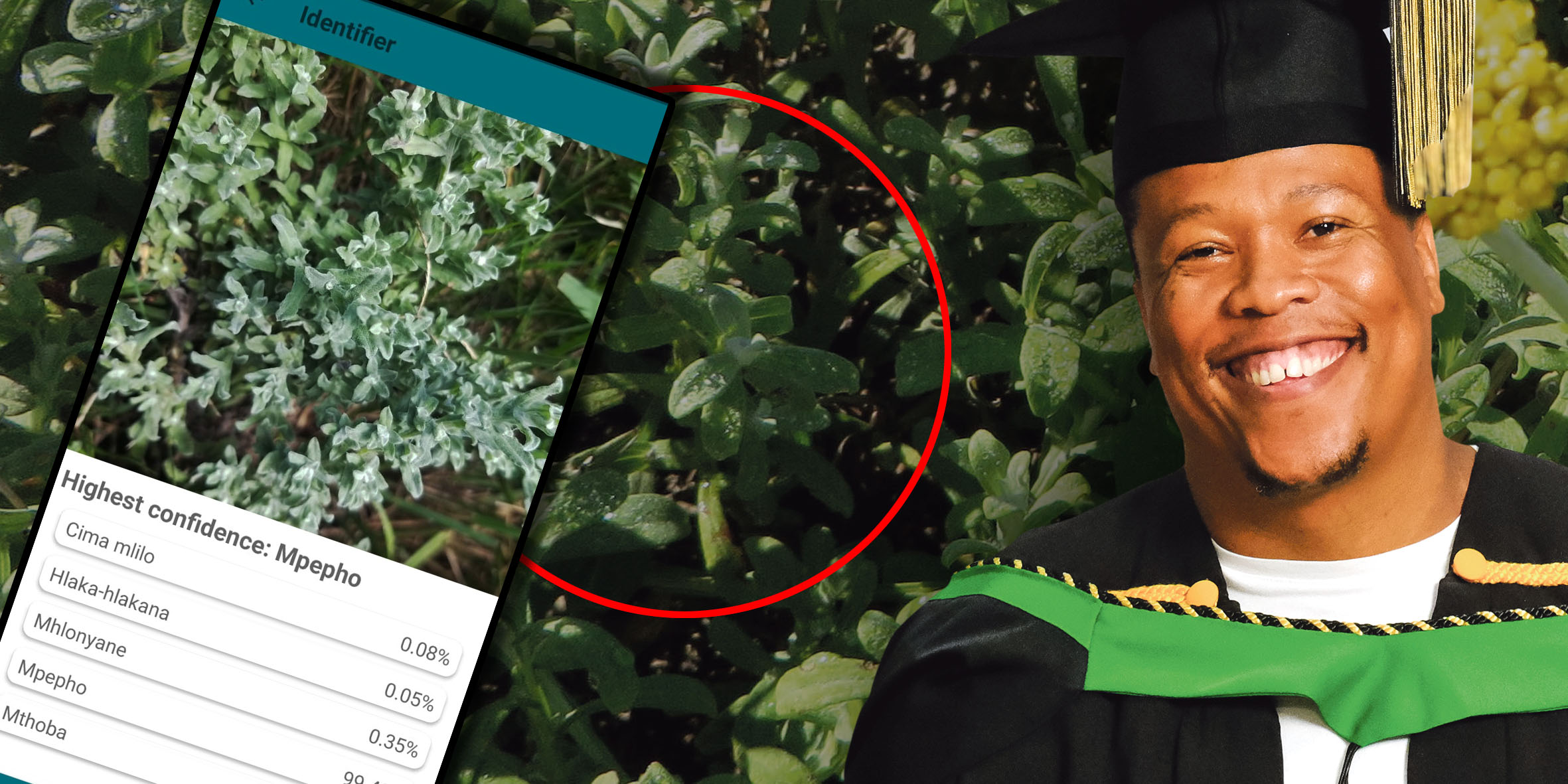It took patience and time, but information technology (IT) systems specialist and traditional healer Onke Simandla has successfully designed an app for herbalists by teaching artificial intelligence (AI) to look for and recognise medicinal plants.
Simandla (42) received his master’s degree in IT from the University of Fort Hare in the Eastern Cape this week. For him, it marked a significant milestone in his efforts to merge the worlds of computer science and traditional healing in his home province.
While doing his degree Simandla also completed a short course in plant medicine and performed at the Makhanda Arts Festival, all while holding down a full-time job in the Department of Rural Development and Land Reform in Pretoria.
As he was doing his research, he was approached by the Council for Scientific and Industrial Research, which sponsored a trip to China for him.
“The aim was to go and learn the health system with the view of coming back and starting to implement some of the things we learnt,” Simandla said. He explained that patients at public hospitals in China have access to both traditional Chinese and Western medicine.
The trip has set him on the path to his next goal of establishing a public health system in South Africa in which patients can be offered traditional healing as well as Western medicine in the same facility.
Simandla also wants to set up a system for the manufacture of traditional medicine that can lift rural communities out of poverty by providing proper supply lines of these medicines.
But even in his own practice as a traditional healer, he will never exclude Western medicine. “I would, for instance, say let’s get an allergy test to make sure you are not sensitive to any of the ingredients I am using.”
Science vs spirituality
Simandla grew up in Peelton, a small rural town close to Bisho in the Eastern Cape, perhaps best known as the hometown of the late ANC stalwart Steve Tshwete.
He completed his undergraduate work – a BSc degree in computer science and geographical information systems – and an honours degree in the same field at the University of Fort Hare. But after his father died in 2003, Simandla had to look for a job to support his family and found one in Pretoria.
From a young age, Simandla knew he had a spiritual gift, and this became clear to him while working in the city.
He never wanted to let go of his dream of having a master’s degree in computer science as well, though. “I wanted to heal people, but I was debating in my heart: what about computer science?
“I took this conversation to the ancestors. I said, ‘Hold on a second, hear me out’ – because that is how I speak to them – ‘I spent all these years getting all this knowledge. I am not saying I want to sacrifice the secrets of a traditional healer, but let’s see how I can combine the two. Can’t I use both?’
“As I was having this debate in my heart, my traditional healer who taught me said: ‘Always push for more. Open your mind to the the Western side of things.’”
His mentor encouraged Simandla to pursue his master’s degree. “I last studied in 2006 to do my honours, so that was a long time ago,” he laughed.
It was a dream that finally convinced him to go ahead with his plans.
In the dream, his grandmother showed him a cellphone and said he should use it. “She told me to travel the world and spread the word of healing.”
Designing the app
Simandla’s alma mater, Fort Hare, was a natural choice for his third degree because the plants he wanted to use on his app grew in the Hogsback Mountains in the Eastern Cape. The scientific names of plants are not used on the app.
“I wanted to name them by their traditional names,” he said. “Should a person who knows how to use the phone maybe not have got that far in their learning that they know the botanical names, they can still use it.”
Describing the use of the app for traditional healers, he said: “When trainees reach a certain level, they can be sent to the bush to fetch medicinal plants. But even if you have taught them well, there are times when they are still not sure.
“The app also allows for traditional healers to create assignments for their trainees and for trainees to submit them. Even if you are in the veld, the app can help you. If you show it the wrong plant it will say no, this is not the one.”
Simandla said the biggest lesson he learnt from dealing with AI is that it is still trying to catch up to the human brain. He explained how he was teaching the algorithm to recognise a plant, but at the time the plant was flowering. “When I showed it to the machine when it was not flowering, it did not recognise it. The machine got confused,” he said.
“I thought of the AI we created like an old woman. One specific old woman, in fact, helped us with a plant that healed my son when he was a baby.
“I think both my experience and creating the app underscore that it will always be important to have the human touch. You have to teach the machine and train the algorithm to improve.” DM
This story first appeared in our weekly Daily Maverick 168 newspaper, which is available countrywide for R35.






